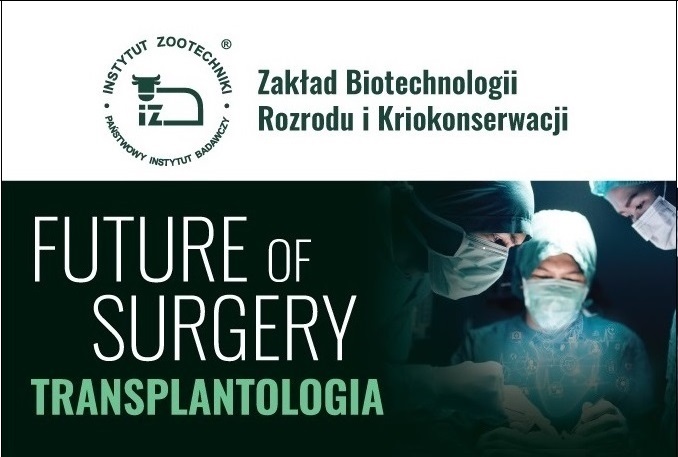A team of scientists from the Department of Reproductive Biotechnology and Cryoconservation of the National Research Institute of Animal Production in Balice, according to an agreement signed on 30 October 2024, will be responsible for conducting research as part of a project implemented by Innovations for Heart and Vessels Sp. z o.o., concerning the development of production technology and prototypes of biological valve implants for percutaneous and minimally invasive treatment of valve defects.
We will be responsible for the production, for the purposes of the project, of biological material with specific properties and origin, i.e. porcine pericardium obtained from transgenic animals, which will then be used for the production of TAVI biological valves, explains Monika Trzcińska, PhD, Professor of NRIAP, Head of the Department of Reproductive Biotechnology and Cryoconservation at the National Research Institute of Animal Production in Balice.
Animal tissues have already been used in medicine for many years, but I hope that thanks to this project, we will make another step in the progress of science and medicine, says Tomasz Jacek, PhD, Director of the National Research Institute of Animal Production in Balice. The National Research Institute of Animal Productionis the only scientific research centre in Poland with transgenic pigs. They represent good material for further biomedical work. What results will the research starting soon at our Institute bring? Hopefully groundbreaking, he adds.
The project of Innovations for Heart and Vessels Sp. z o.o. is realized on the basis of the agreement no. FENG.01.01-IP.02.1053/23 concluded with the Polish Agency for Enterprise Development on 28 December 2023, co-financed from the programme European Funds for Modern Economy, Priority 1 Support for Entrepreneurs, Measure 1.1 Smart Path.
Another success for the female scientists of the National Research Institute of Animal Productionin Balice!
Tags: Y chromosome, female scientists, Arabian stallion, PNAS
Heartfelt congratulations to Prof. Katarzyna Ropka-Molik, PhD and Monika Stefaniuk-Szmukier, PhD, Prof. of NRIAP, who participated in the Y chromosome study led by Lara Radovic and Barbara Wallner from the University of Veterinary Medicine in Vienna. A detailed analysis of 1517 stallions belonging to 189 breeds allowed the reconstruction of the spread of horses of oriental origin over the last 1500 years. On this basis, the researchers demonstrated the routes of the spread of oriental stallions through the Iberian Peninsula to Europe and the New World between the 8th and 16th centuries, as well as a second important historical process of the spread of horses from Western Asia, attributed to the expansion of the Ottoman Empire, providing the source of the Arabian and Thoroughbred stallions that later played such a key role in the formation of modern horse breeds.
The researchers at the National Research Institute of Animal Production have also co-authored an article in the prestigious American journal PNAS, in which the findings are detailed. The publication is available at https://www.pnas.org/doi/10.1073/pnas.2414408121.
